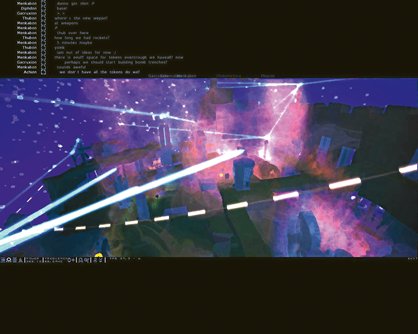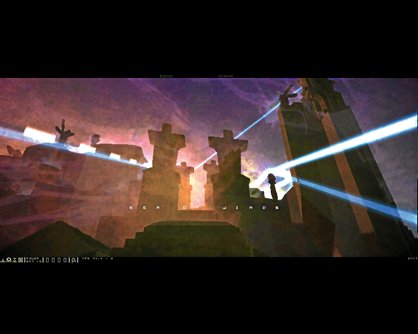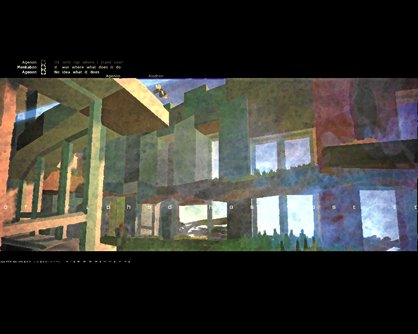Love – hands-on
The surreal multiplayer building game is finally playable
The painterly multiplayer world of Love is, for now at least, a place as much as a game. It’s the passion of one improbably talented, audaciously unconventional programmer named Eskil Steenberg; a man who seems to have found a new way of doing just about everything.

The result is an incredible experience to explore, like nothing else you’ve played. Now that it’s available in alpha, floods of players are exploring its procedurally generated landscapes. In fact, they’re shaping them. It’s a persistent universe made as much by its players as its original developer.
Don’t expect to be led by the hand, though - Love is unlikely to be that kind of game even once it’s finished, and this is an early test version. It’s a hostile world of nebulous gases and harsh shapes, seen through an impressionistic haze. The place shifts and smears like it’s been spread onto your monitor with a pallet knife.
You’re the artist, though. You’re free to sculpt these spherical worlds, tearing up giant mesas and carving your own Xanadu into their polygonal heights. Soon, you’re melding the world’s strange native architecture with your own designs, and collaborating with a handful of other players to make a fortress against the mindless horror of the vicious AI.

These AI are after the same things as you: land to make their home, power from wells to make it work, and special tokens needed to unlock new tools with which to build. But they’re relentless, unreasonably demanding, voracious. They just keep coming, these spooky shapes from the mist that look just enough like you to dull your guard.
Love is initially overwhelming to both your senses and reason, and it’s in constant flux. These are the pioneer days when server settings – and therefore the laws of nature – change at Eskil’s whim. Nothing is permanent, but despite that, you’ll spend hours planting grass and fitting windows to a palace that’ll be gone by morning.
It’s filled with confused newcomers who rightly are learning by experimentation, unwittingly unraveling the teamwork of dozens as they play with their strange new tools. Amusingly, their uncontrollable arrival is causing Love to evolve defenses: players are devising labyrinths of stone, teleporters and floating castles in the sky to defend their creations from clumsy but well-meaning noobs.
Weekly digests, tales from the communities you love, and more

It’s still not clear, even now that we can play it, how this artistic orgy will evolve as a game. Your characters are so ethereal, players have taken to calling them ghosts, and there’s not yet much sense of progression. But clearly, that’s part of the point. If we could predict what Love would turn into, it wouldn’t be the exciting new frontier it feels like now.
Nov 19, 2009


